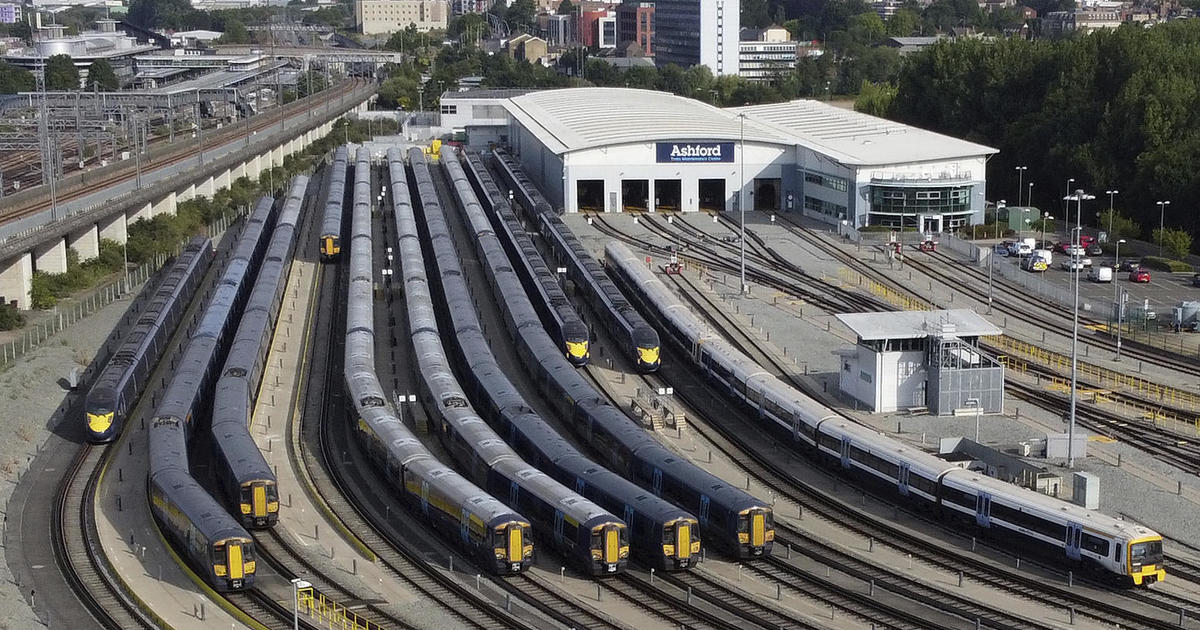Workers, vacationers and sports fans faced travel disruption in Britain as thousands of train drivers walked off the job Saturday, the latest strike in an increasingly bitter labor dispute on the nation’s railways.
About 5,000 drivers staged a 24-hour strike against seven train companies across England. It came on the second full day of the Commonwealth Games in Birmingham and the first day of the new English soccer season.
The drivers’ walkout followed four daylong strikes since June by railway cleaners, signalers, maintenance workers and station staff in a dispute over pay, jobs and working conditions.
Unions are fighting for substantial pay increases to cope with inflation of more than 9% and the worst cost of living crisis in decades. Train companies are seeking to cut costs and staffing after two pandemic-hit years in which emergency government funding kept them afloat.
Unions accuse the Conservative government of preventing train companies — which are privately owned but heavily regulated — from making a better offer, something the government denies.
Writing in the Times of London, Transport Secretary Grant Shapps accused “militant union leaders” of resisting necessary reforms and “taking the taxpayer for a ride, but not in the way they were meant to.”
Mick Whelan, leader of the train drivers’ ASLEF union, said workers just wanted a “realistic” pay raise.
“For the last three years, we’ve had no pay rises,” he told the BBC. “The people we work for will be making hundred of millions of pounds and giving money to their shareholders.”
More strikes are planned for August, in what is turning out to be a summer of travel disruption, in Britain and around the world. Air travelers in many countries are facing delays and disruption as airports struggle to cope with staff shortages and skyrocketing demand for flights after two pandemic-hit years.
Truck drivers and Britons heading off on holiday by ferry faced hours-long waits at the port of Dover last week amid delays caused by Brexit and a shortage of French border officials.
